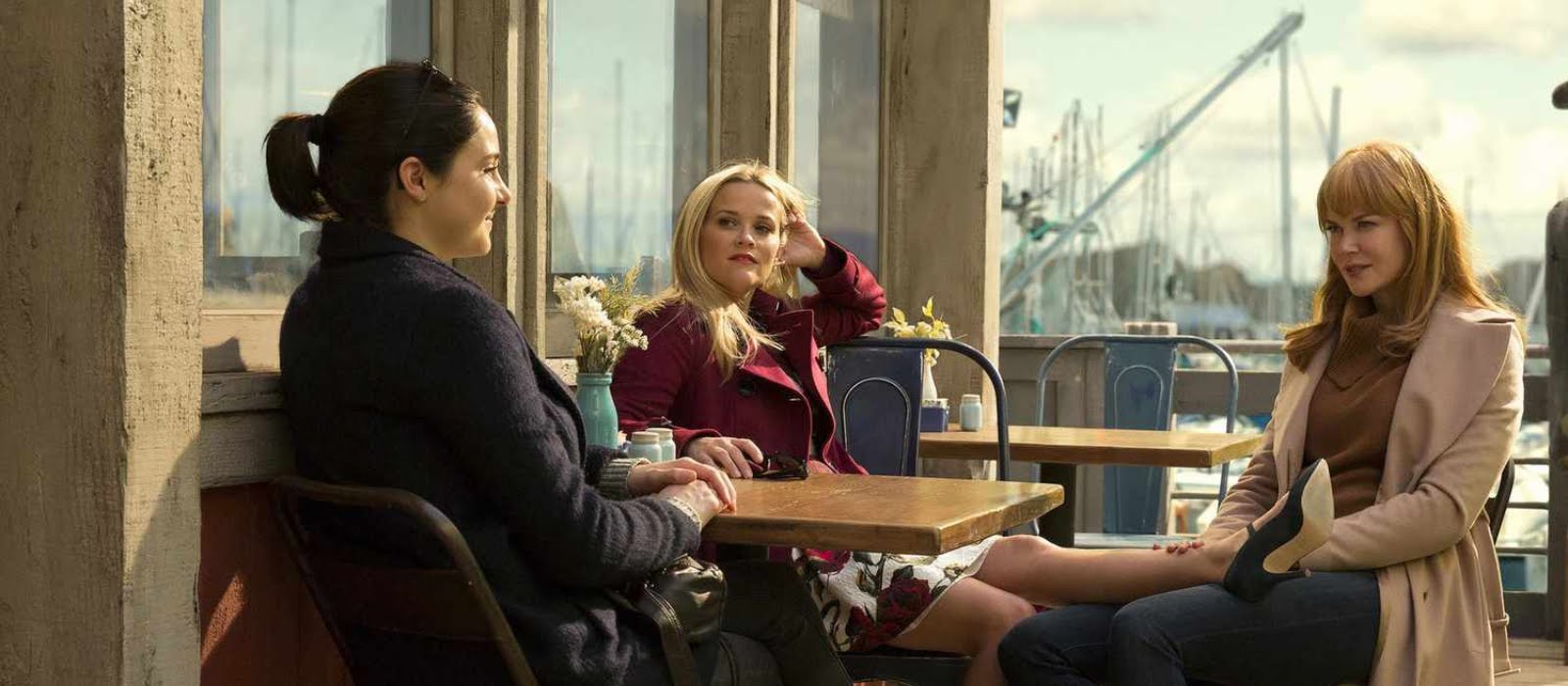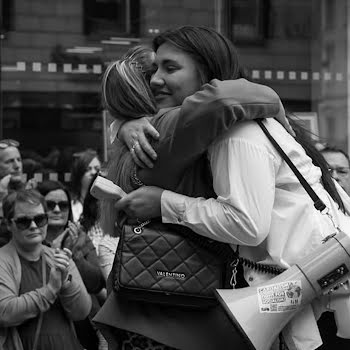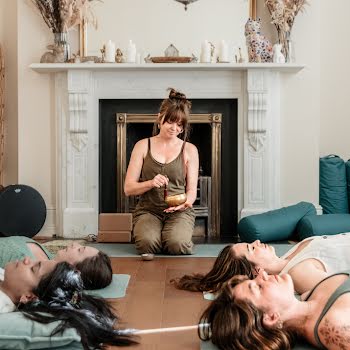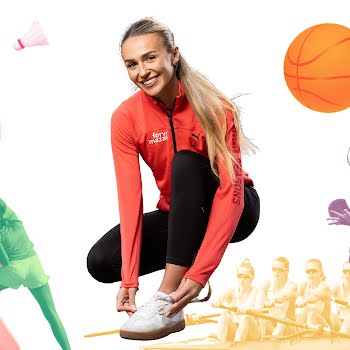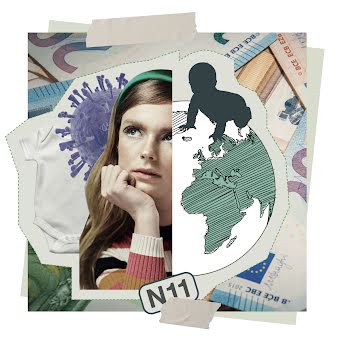The tiny favours economy: why you should definitely ask your neighbour for a cup of sugar
Convenience-focused apps and a hyper-individualistic culture encourages us to do everything ourselves and pay for help when we need it. But what connections, relationships and social bonds are we missing when we don’t ask our neighbours for a cup of sugar?
A couple of weeks ago, a rare thing happened: my social anxiety was conquered. Only momentarily, and out of sheer desperation, but conquered it was. After moving gaff a while ago, I had a bunch of crap and DIY materials to get rid of and hired a skip for all the non-recyclable rubble, but quickly realised that loading up the skip would require a lot of lifting and hauling that my occasionally sciatica-afflicted back was not going to thank me for. Stuck between some literal rocks and an inevitably painful place, I remembered seeing a neighbour across the road using a wheelbarrow a month previously. “That’s what real adults are like,” I thought. “They plan things well and have all the necessary equipment, like wheelbarrows.” I wondered where I could buy a wheelbarrow. I remember fondly Task Rabbit, an app that my flatmate in San Francisco had once used when she needed some heavy furniture moved. I considered hopping on TaskMatch, an Irish website where you can hire people to do odd jobs, but I was tired, broke and needed this job done quickly. And so I crossed the road, knocked on a near-stranger’s front door and asked if could I borrow a wheelbarrow.
I don’t know these people. We met briefly when I moved into the neighbourhood and they were warm, welcoming and chatty. We quickly found some pop culture interests overlap and they have a cat who has yet to start a turf war with my own tiny panther. Even in our brief introduction, they seemed like my kind of people. But we haven’t had the chance to hang out and barring some across-the-street waves, I haven’t bumped into them in the past year. Frankly, me knocking on their door while absolutely covered in grime and dust and asking to borrow their property seemed the height of absolute cheek.
But reader, they could not have been nicer. They didn’t have their wheelbarrow, which was being used by a relative (they’re the go-to wheelbarrow lenders in town, apparently), but did offer me some giant buckets and mini-wheeled platforms so I could roll my scrap instead of lifting it. They also showed me their gorgeous garden, gave me some tips on the fabulous flowers they were growing, said we should get together soon, and when I mentioned that I was gluten intolerant, said they were working on a gluten-free pizza recipe and we should road test it. It was like the friend-meet-cute I had always wanted, and I nearly didn’t get to enjoy it because I was worried that asking for help was too much of a burden.
My initial instinct to reach for an app instead of asking a person isn’t surprising. Over the past few years, apps have replaced so many of our in-person interactions, and have outsourced jobs we used to ask friends and neighbours for help with to strangers. If you’re sick and need some medicine or a takeaway or groceries delivered, there’s an app for that. If you need a lift to the airport or a catsitter for the week, there’s an app for it. Want a recommendation for a new show? Why text someone you know when you could ask strangers on Reddit or X and get fifty recommendations instead of one?
These apps were designed for convenience and they are, of course, handy, particularly for people who live alone or have disabilities and don’t have someone in their home to share the unending everyday tasks of life. But with the proliferation of these apps has come a social side-effect; the prioritisation of convenience over connection. The promise of these apps is that not only do you have to deal with less inconvenient tasks, but in so doing, you become a less inconvenient person for those around you. You don’t have to ask friends, family members or neighbours for favours that might be inconvenient or annoying; you can simply pay a stranger instead.
With the proliferation of apps has come a social side-effect; the prioritisation of convenience over connection.
There are a lot of factors that have contributed to this societal emphasis on hyper-individuality. There are the cultural forces of capitalism and gender that make everyone feel like they have to be financially and emotionally capable of dealing with everything alone. The housing crisis in Ireland means that many people are forced to live further away from their social support system so that they don’t have anyone local to call when they need help. Hustle culture and the gig economy have eroded the division of work and rest hours for many, meaning it’s harder to not only socialise and build up connections but to have the predictable free time and energy to be able to offer constant reliable help to others. The cost of childcare, care for people with disabilities and lack of affordable eldercare has created a system where individuals are forced to do the work that should be subsidised by the government, creating the idea that individuals are responsible for what was historically the work of communities and funded organisations, and also means that many people (predominantly women) have to do a lot of unpaid care work for family members, leaving them understandably burned out and unable to focus on friendships.
Within this individualist system, the lie is that there’s no systemic issue, simply decisions and sacrifices that everyone must make, and if you’re struggling to make it work, it’s not because the system is broken, it’s because you are.
This lie works because it preys on insecurities that many of us have: the fear of being a burden, of being too much, of being needy in a culture that tells us that our needs are the mark of a personal failing and an inconvenience to everyone around us.
These insecurities are not being assuaged by our often overly simplistic rhetoric around relationships. We live in a society that speaks endlessly about mental health and loneliness – but instead of emphasising connection, open vulnerability and providing various forms of support, our current discourse is instead obsessed with the idea of individuals doing everything alone, and avoiding being inconvenienced at all costs. We discuss personal boundaries and self-care far more than we discuss community, using therapy speak to create scripts that let us off the hook for flaking on plans, cutting off friends instead of working through conflict and claiming that we don’t have the ‘bandwidth’ for friends who are going through difficult times and need someone to talk to. We talk about cutting off people and relationships that “no longer serve us” as if relationships are a one-sided consumable object that exists only to deliver everything we need without asking anything of us in return.
But while we talk about self-care and self-protection, we are also internalising the messages we’re creating about the other side of that dynamic: Asking for anything is an intrusion, so don’t do it. Wanting a favour is detracting from someone else’s bandwidth, and is therefore selfish. Needing help shows that you’re incompetent, so don’t admit to it.
It’s against this social and cultural backdrop that convenience apps are flourishing. “Don’t ask anyone for anything, don’t be a burden”, they imply. While emphasising the convenience and supposed independence that offer, the apps never mention that they are in fact making us dependent – dependent on having money, and eroding the culture of help, community and support so that when in need, we’re left with no choice but to pay for everything we need.
It’s also eroding our sense of belonging. Mirco-connections is the term psychologists use to describe the small, everyday interactions we have with strangers – making small talk with a cashier in a shop, the conversations you have when you see the same person at the library every week, slowly getting to know the barista who works in your favourite coffee shop. These micro connections can be one-offs, like complimenting a stranger’s cute baby in a lift, or can build over time, so that you come to expect to see the friendly person at your favourite takeaway counter. Many of the apps we use are erasing our need to leave the house and enjoy these micro-connections, which have psychological benefits like improving our mood, making us feel less alone, and increasing our sense of trust, safety, and sense of belonging, particularly when these micro-connections happen in our neighbourhood or frequent hangout spots.
Micro-connections are beneficial in their own right, but can also lead to genuine friendships – but only if we cultivate them. And what’s noticeably absent from the culture of hyper-individualism is the acknowledgement that asking for and receiving help is a form of intimacy. When we can ask for and receive help, it makes us feel safer and less lonely, knowing that our vulnerability or need for assistance will be met with acceptance, grace and support. It also can feel good to be asked for help, letting us feel useful, needed, thought of, or relied upon – and if we are asked for help, it makes it easier to ask for help in return.
We discuss personal boundaries and self-care far more than we discuss community, using therapy speak to create scripts that let us off the hook for flaking on plans, cutting off friends instead of working through conflict.
I like feeling needed. Some of it is some people-pleasing behaviour that I need to work on, but most of it is an awareness that trust, vulnerability and intimacy are co-created in relationships. When a friend asks to vent about a relationship problem (which happens a lot; occupational hazard of being an advice columnist), it makes me feel trusted – but also means I feel more comfortable ringing them and asking to vent when I need to. I also often volunteer to babysit my friends’ kids, which I enjoy because their kids are cute, but also because as a person without kids, I know there are a lot of aspects of their lives I will never fully understand or be able to intuit – but I can tell them to take a night off and go to their favourite restaurant. Doing this is a way of maintaining our relationship and connection across different lifestyles – but also means that as someone who lives alone, if I ever get sick and need a pharmacy run or need someone to feed my cat if I’m away for a night, I can feel more comfortable asking them for help, knowing we have a relationship where we support each other.
This sense of reciprocity can be called the “tiny favours” economy, where community members ask each other for small favours, knowing that it strengthens bonds and creates a safe space for everyone to ask for help when needed. This works in friendships too – if one person asks for an early-morning ride to the airport, the driver may then feel more comfortable asking for some emergency babysitting if something comes up. Not only are both people learning about each other’s needs, offering support at vulnerable times but they’re creating a bond of support that cannot be replicated without these gestures of vulnerability and support. The tiny favours economy leads to community, and as culture writer Anne Helen Peterson explains, “Community is a source of babysitters, of surrogate grandparents and aunts and uncles, and of emergency care — a means, really, to make the load of being a human in the world feel lighter and more bearable. And it also provides opportunities for you to provide that service in return, when and if you’re able. It’s like mutual aid for the totality of our lives.”
The tiny favours economy isn’t always easy and isn’t always equal; women are often asked to do more for others than men and are socialised not to say no. Single people, people with disabilities or people with difficult life circumstances may have less to give, tangibly or energetically, and there will be people who need more help than they can give. That’s okay. The point of the tiny favours economy is that there is a community of people willing to help each other – the responsibility will fall to one person, and no one is expected to give more than they can.
I returned my neighbour’s buckets. I’m going to invite them over for tea as a thank you. Both so that they know that I’m around and willing to help if they ever need it, but also because they responded to my hour of minor need with grace, kindness and warmth, and they’re the kind of people I will always have space for in my life. And if I hadn’t asked them for help, I might have missed out on the opportunity to remember the kindness of strangers and the potential for connection that lies everywhere. What a greyer, grimmer world that would have been.











